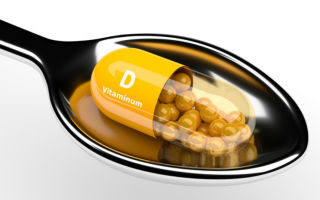Content
- 1 Description and characteristics of vitamin D
- 2 Forms of vitamin D
- 3 Why vitamin D is useful
- 4 Why do women need vitamin D
- 5 The benefits of vitamin D for men
- 6 Do the elderly need vitamin D
- 7 Vitamin D for infants and older children
- 8 Vitamin D in bodybuilding
- 9 Does vitamin D affect weight loss
- 10 Indications for the use of vitamin D
- 11 Daily intake of vitamin D
- 12 Blood test for vitamin D
- 13 Symptoms of Vitamin D Deficiency in the Body
- 14 Why is excess vitamin D in the body dangerous?
- 15 Where is vitamin D contained
- 16 The best preparations with vitamin D
- 17 Features of taking and dosage of vitamin D
- 18 Which vitamin D is better to take
- 19 The harm of vitamin D and contraindications
- 20 Allergy to vitamin D
- 21 Interaction of vitamin D with other substances
- 22 Conclusion
- 23 Reviews
The benefits and harms of vitamin D is an interesting question, since human health largely depends on this substance. It is necessary to understand the purpose of the substance, find out where it is contained and understand if there is a danger in it.
Description and characteristics of vitamin D
Contrary to stereotypes, vitamin D is not called one specific substance, but a whole group of biologically active compounds. The group consists of 6 components, but most often only 3 of them are considered in medicine - D1, D2 and D3.
The main role of a substance in the body is the regulation of calcium-phosphorus metabolism. The beneficial substance is responsible for the safe absorption of calcium from incoming food, for the quality of metabolic processes, as well as for hormonal synthesis and the process of cell renewal.
Forms of vitamin D
Despite the fact that most often any substances from this group are called vitamin D, in fact, it is customary to isolate 6 different forms of a biologically active component.
- D1 is a synthetic substance responsible for the growth of bone tissue. It does not occur in its pure form in nature, it can be obtained only by synthesis, it has the ability to accumulate in the body.
- D2 - a substance that regulates the level of phosphorus and calcium, has an effect on hormonal levels.
- D3 is a vitamin essential for the immune, nervous and circulatory systems.
- D4 is a substance that controls the level of minerals in the body and regulates metabolism.
- D5 is a vitamin similar in properties and action to D3, but less toxic and often used in the treatment of diabetes and inflammatory ailments.
- D6 is a useful substance that protects the body from rickets and osteoporosis.
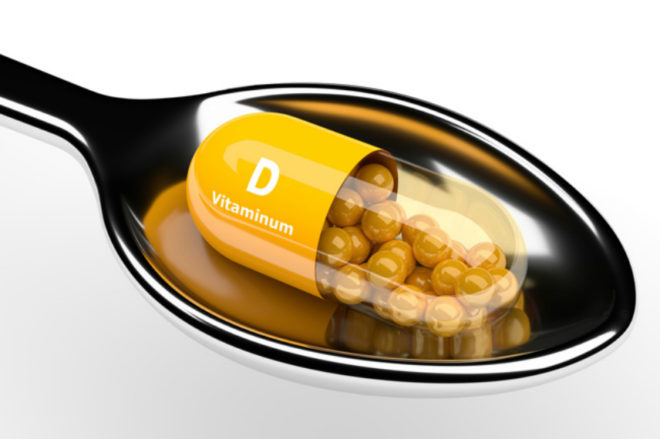
Since the forms of a substance largely overlap with each other and have common properties, they are most often spoken of as a single element.
Why vitamin D is useful
The substance is absolutely essential for the healthy functioning of the human body. In particular, it answers:
- for the normal absorption of phosphorus and calcium;
- for hormonal background - the production of testosterone and estrogen, for reproductive ability and a regular menstrual cycle in women;
- for the body's immune resistance and metabolic processes;
- for blood clotting and skin condition;
- for the normal development and functioning of the nervous system.
The benefits of vitamin D for hair are clearly manifested, against the background of its intake, the curls become stronger and stop falling out.
Why do women need vitamin D
The benefits and harms of vitamin D for women lie in the fact that the substance is largely responsible for the female reproductive system and hormones.Adequate vitamin D helps women cope with exercise and blood loss more easily during menstruation. The beneficial substance is especially important during pregnancy, when mineral elements are consumed in double volume, and the woman's skeletal system weakens.
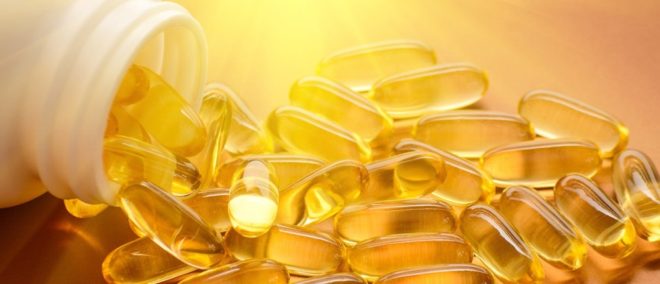
The substance is responsible for the freshness and elasticity of the skin, for the strength and volume of the curls. This is the benefits of vitamin D for women after 40, it allows you to stay young for longer.
The benefits of vitamin D for men
The beneficial properties of vitamin D for men, first of all, is that the substance contributes to the normal production of testosterone. Also, the substance regulates the functioning of the thyroid gland and protects the heart and blood vessels from ailments, reduces the risk of developing diabetes, joint diseases and oncology.
Do the elderly need vitamin D
Upon reaching the age of 50, many people begin to experience problems with joints - arthritis, osteoporosis, rheumatism develop, stoop appears, and the condition of teeth and hair worsens. Bones in old age become fragile, the skin ages, the body begins to synthesize the substance that comes with sunlight worse. Its absorption from food also deteriorates.
For these reasons, the benefits of vitamin D for the human body are especially well manifested after 50 years. Vitamin complexes help to strengthen the bone and nervous system, support the work of blood vessels, heart and brain, and protect the body from a wide range of dangerous diseases.
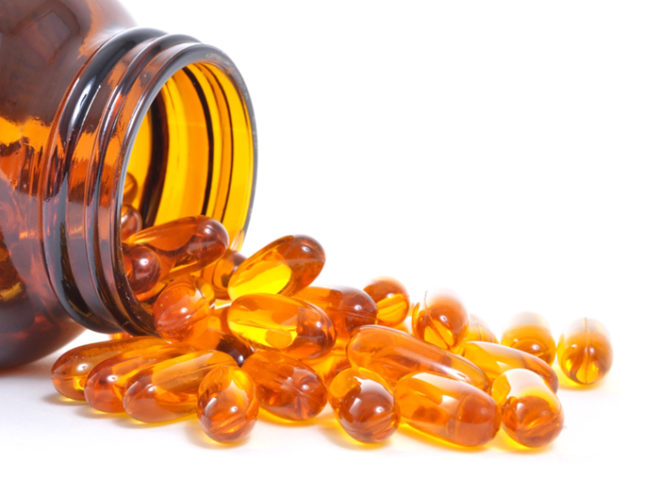
Vitamin D for infants and older children
As the bones and nervous systems of babies are in the process of formation, the properties of the substance are very important for healthy development. But the benefits and harms of vitamin D for children depend on the initial concentration of the substance in the blood.
Doctors agree that it is not required to supply babies with this substance.
- If the baby is on the street every day for at least an hour and feeds on breast milk, while the mother eats fully, then the substance enters the body in the right amount.
- Moreover, infants who use artificial formula do not need useful supplements - all the necessary elements are already contained in baby food.
- Older children also do not need vitamin D if they are in the sun every day and have meat and dairy products in their diet.
Vitamin D for newborns is recommended only if the child spends most of the time indoors, and at the same time there is not enough vitamins in his diet. In this case, the prevention of rickets with vitamin D.
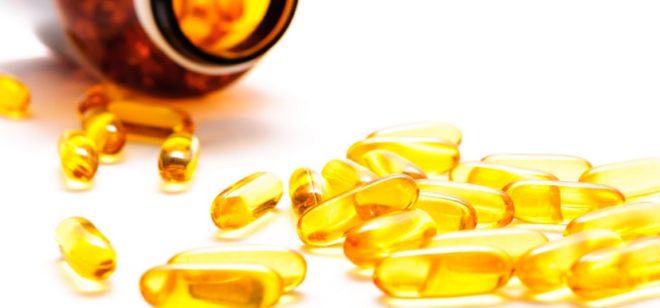
Vitamin D in bodybuilding
In the area of responsibility of the substance are not only bone tissue, but also the hormonal background, in men it is responsible for the production of testosterone. This nuance is actively used in bodybuilding - taking appropriate supplements leads to increased production of the "male" hormone.
In turn, high testosterone levels contribute to faster muscle growth. The athlete's endurance and strength indicators increase, training is easier and brings better results.
Does vitamin D affect weight loss
The benefits of vitamin D for adults also lie in the fact that the substance and its concentration in the body directly affect body weight. Scientific studies show that those who are overweight have significantly lower levels of the required substance. Normal vitamin D levels help maintain a healthy weight. With a tendency to be overweight, it is recommended to carefully monitor the indicators of an important substance in the body.

Indications for the use of vitamin D
The level of the substance must be carefully monitored by any person, regardless of health status. However, in some conditions, special attention should be paid to the indicator of an element in the body. The benefits for the body from vitamin D3 will be:
- with atherosclerosis, renal failure and heart disease;
- with osteoporosis and rickets, including at the risk of developing these ailments;
- with diseases of the intestines and stomach;
- with dental problems - caries, brittle teeth and a tendency to crumbling;
- with dermatitis, eczema, diathesis;
- with tuberculosis;
- with increased fragility of bones and after fractures and injuries.
At risk are people who constantly work in confined spaces, underground and in regions located beyond the Arctic Circle, they desperately need the beneficial properties of the substance.

Daily intake of vitamin D
For health, both a deficiency and an excess of a substance are equally harmful. The correct daily dosage depends on the person's age, and the amount of the vitamin is measured in international units, or IU. 1 IU equals 0.025 mcg of the beneficial substance.
Recommended daily allowances are distributed as follows:
- children and adolescents under 13 years old require 200 to 400 IU per day;
- adolescents from 13 years old and adults up to 50 years old - from 200 to 250 IU;
- elderly people from 50 to 70 years old - 400 IU;
- elderly people over 70 years old - 600 IU.
It is equally useful to consume foods saturated with the substance and special vitamin complexes. You can also get vitamin D for the skin of the face and the whole body through sunlight.
Blood test for vitamin D
It is recommended to constantly monitor the level of a substance in the blood. From time to time, you can do a special laboratory test for the concentration of D2 and D3 in the blood.
Blood for analysis must be taken from a vein on an empty stomach. According to the results of the study, the level of both substances is determined, normally it should be from 10 to 40 μg / l.
Symptoms of Vitamin D Deficiency in the Body
To establish the exact concentration of a useful element allows laboratory analysis, but it is necessary to understand in time that it is time to donate blood for research. Symptoms associated with a substance deficiency include:
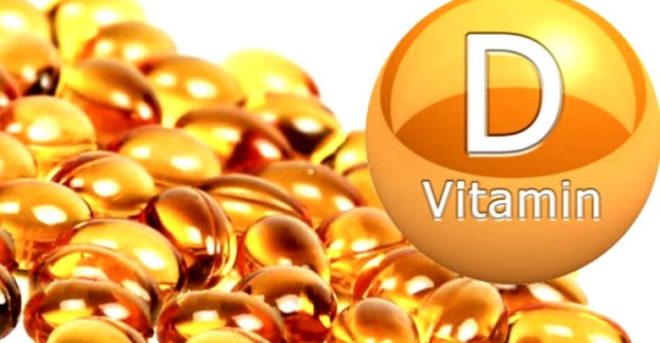
- weak immunity;
- chronic fatigue;
- slow healing of skin lesions;
- joint pain;
- depression.
In addition, hair loss and a tendency to gain weight and muscle pain are signs of deficiency. Elderly people often experience loss of bone mass due to a lack of calcium.
Why is excess vitamin D in the body dangerous?
Despite all the harm from a lack of a substance, its excess does not do anything good either. An overdose of vitamin D results in weight loss and redness of the eyes, muscle discomfort and poor appetite. Vomiting and diarrhea are also common.
It must be understood that for severe hypervitaminosis, the substance must accumulate in the body in significant volumes. An overabundance occurs when you receive 40,000 IU or more daily for several months.
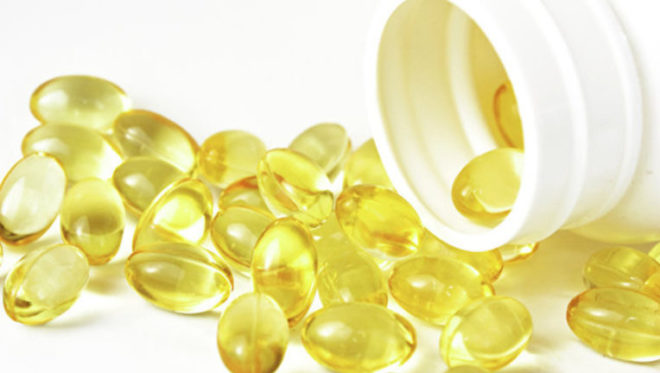
Where is vitamin D contained
A useful substance can be obtained in several ways. It is customary to maintain a normal level of an element in the body by using special foods and frequent exposure to fresh air.
Foods containing vitamin D
In certain volumes, the properties of the substance are present in many food products. But in the greatest concentration it contains:
- cereals and forest mushrooms;
- egg yolks;
- salmon, tuna, sardine and mackerel;
- fish fat;
- milk, cheese and other milk products;
- beef liver;
- soy;
- Orange juice.
Solar irradiation
Vitamin D for joints and bones can be obtained not only from foods, but also directly from sunlight. Ultraviolet radiation promotes the production of a valuable substance in the body, especially in the summer. A very useful procedure is visiting solariumbecause the skin is not covered with tissue during the procedures.
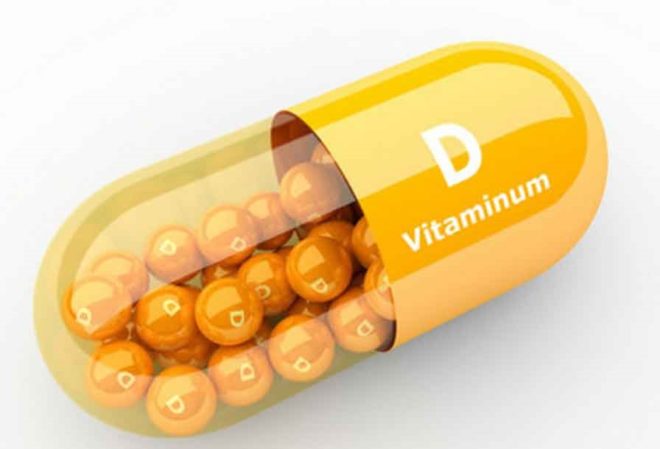
The concentration of the component in the blood of residents of northern countries traditionally drops in winter, since daylight hours are reduced, and the body almost ceases to receive the substance through the sun's rays. In order to avoid harm from a deficiency of a substance in the winter, it is recommended to especially actively consume foods rich in it and special complexes.
The best preparations with vitamin D
In pharmacies, the substance is sold mainly in 2 forms - in the form of drops or tablets. Many domestic and foreign pharmacological brands offer effective useful drugs, but several of them are most famous.
Vitamin D drops
A substance in liquid form can occur in both oily and aqueous forms. The following supplements are popular:
- Aquadetrim - an aqueous solution dispensed in small dark glass vessels, 10 ml each. The supplement replenishes the lack of calcium in the body, improves immunity and maintains muscle tone. You can use the medicine in accordance with the instructions for both adults and children.
- Vigantol - oil drops, sold in bottles of 10 ml. The additive protects the body from the development of rickets and osteoporosis, acts on a cumulative basis. Taking the medication helps to increase the concentration of the substance in bone and muscle tissues.
- Davisol - oil solution in 10 ml containers, intended mainly for children and adolescents. It helps with calcium deficiency, metabolic disorders and a tendency to rickets, it is necessary to take the supplement in accordance with the instructions - 1 drop per day for children and 2 drops for adults.
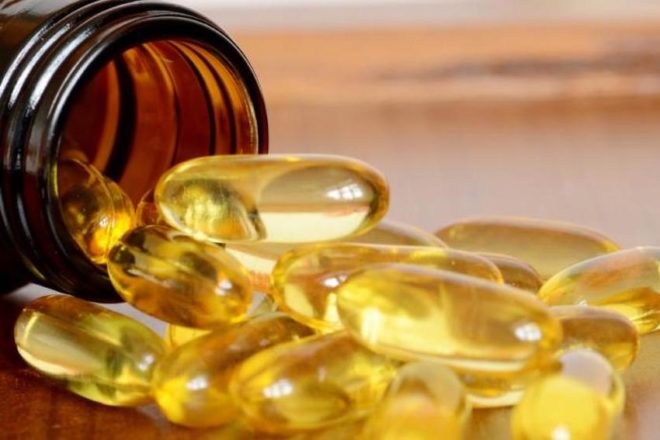
Vitamin complexes
In pharmacies, you can buy not only drops, but also tablets. The most famous are such complexes as:
- Calcium-D3 Nycomed - chewable tablets with a fruity taste and a high content of calcium and cholecalciferol, the product can be used by adults and children from 6 years old.
- Tevabon - tablets and capsules with the active ingredient alfacalcidol, taken for the treatment or prevention of osteoporosis.
- Complivit Calcium D3 - chewable tablets based on cholecalciferol and calcium, help prevent the development of osteoporosis, eliminate brittle nails and improve blood clotting.
Features of taking and dosage of vitamin D
Despite all the benefits of the substance, its properties in case of an overdose can cause great harm to the body. Therefore, it is necessary to use vitamin complexes and drops as directed by a doctor, in the quantities prescribed by him. If for some reason it is not possible to consult a doctor, and you need to fill the shortage of the substance urgently, then you should adhere to medium dosages.

For adults
The recommended daily allowance for the substance for men and women from 13 to 50 years old is up to 200 IU, or 2-5 μg of the drug. For older people, the dosage is slightly increased - up to 600 IU, or from 12 to 15 mcg.
For children
Since the bone, muscle and nervous systems in children are developing intensively, they need increased dosages of the substance to feel good. For babies under 1 year old, it is recommended to give up to 400 IU, or up to 10 μg of the drug, and for children from 1 to 5 years old - up to 480 IU, or up to 12 μg.
Children from 5 to 13 years old are gradually transferred to an "adult" dosage of up to 120 IU or up to 3 μg.
For pregnant and lactating women
Since the female body especially needs calcium during pregnancy and lactation, with a deficiency of the component per day, women are advised to take up to 10 μg of the drug, or 400 IU.

Which vitamin D is better to take
Despite the fact that in medicine there are several forms of the substance - from D1 to D6, all pharmaceutical preparations are produced under the general name "vitamin D". The difference between the properties of the substances is too insignificant to separate each of them into a separate medicine.
As for the existing forms of implementation, both tablets and drops have their own advantages. The properties of a substance in an aqueous or oily form quickly enter directly into the blood, while tablets are more convenient to dose and take with you on the road. Thus, which vitamin D to choose should be determined for reasons of one's own comfort.
The harm of vitamin D and contraindications
A natural substance is absolutely essential for the human body. But with some ailments and conditions, its properties can cause enormous harm to health. It is not recommended to take medicinal complexes and products:
- with hypercalcemia, that is, an excess of the calcium mineral in the body;
- with active tuberculosis;
- with an ulcer;
- with renal failure and other chronic kidney ailments;
- with ischemia and atherosclerosis.
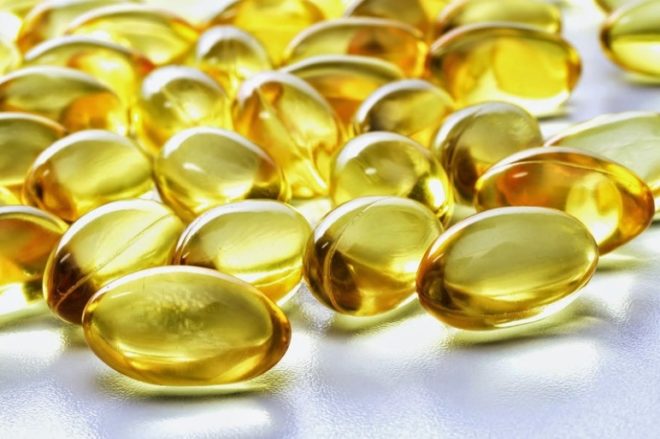
Allergy to vitamin D
Since the substance is absolutely natural for the human body, allergies as such do not happen to it. However, this word is often used to describe the body's negative reaction to low-quality vitamin preparations. Cheap supplements often contain flavors, sucrose, citric acid, and other potentially allergenic constituents.
In addition, the usual overdose of the substance is often mistaken for allergies, especially in children. A negative reaction to the properties of the element is manifested, usually in the form of diarrhea, vomiting, fever, skin rash and edema.
Interaction of vitamin D with other substances
Often people take vitamin D in combination with other drugs. However, the benefits and harms of vitamin D largely depend on which drugs are used simultaneously with it.
So, taking vitamin D goes well with the simultaneous use of vitamin K, vitamins B6 and B12, they enhance each other's action. It is also useful to combine the intake of a substance with the use of vitamin E, which contributes to the rapid absorption of beneficial compounds.

But you should not take the substance at the same time as vitamin A, 2 vitamins weaken each other's valuable properties. Vitamin D does not work well with cholesterol-lowering drugs, antacids, barbiturates, and drugs for tuberculosis.
Conclusion
The benefits and harms of vitamin D depend on its initial concentration in the body. It is necessary to take the substance only if there is a deficiency, otherwise the vitamin will harm the body.
Reviews

